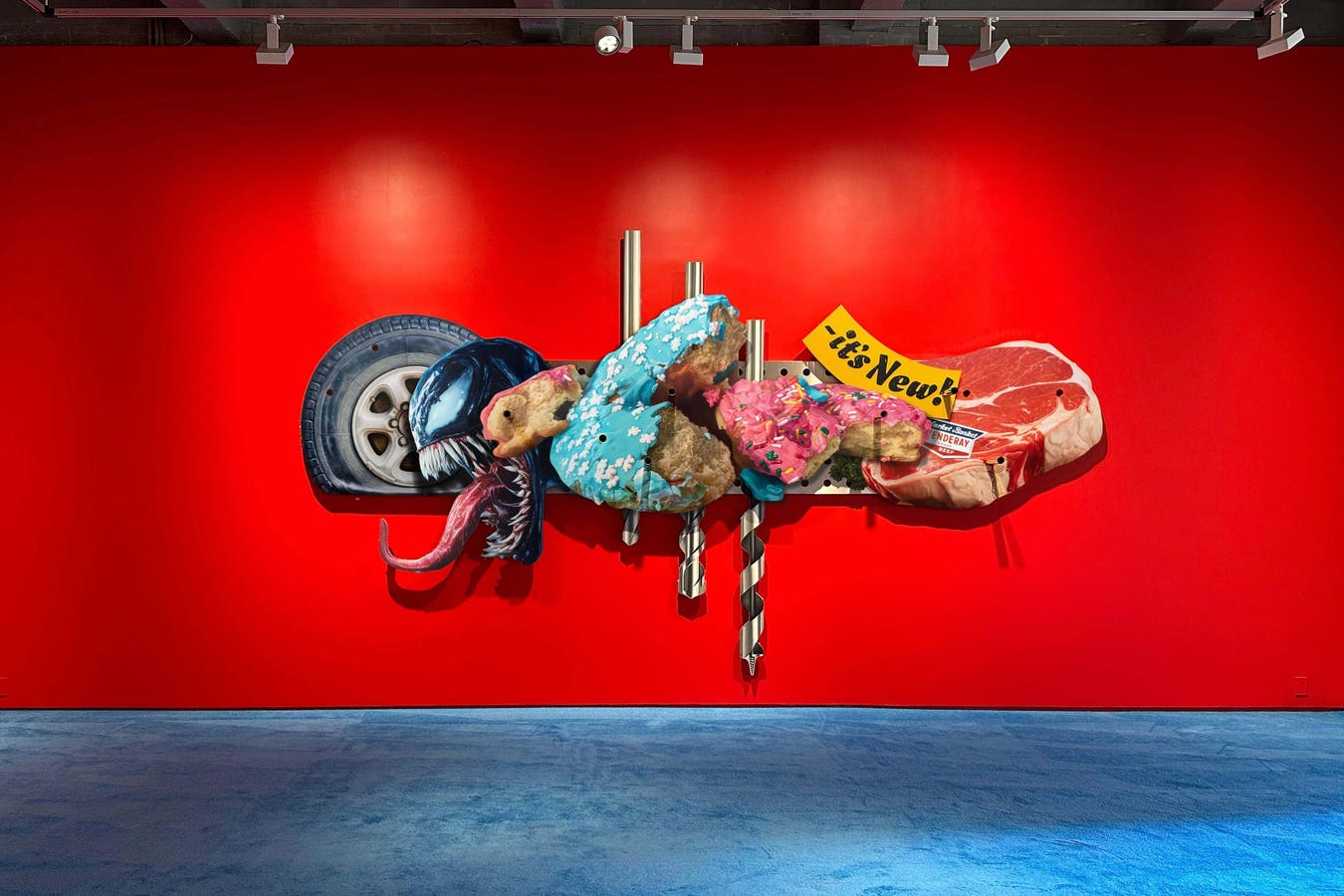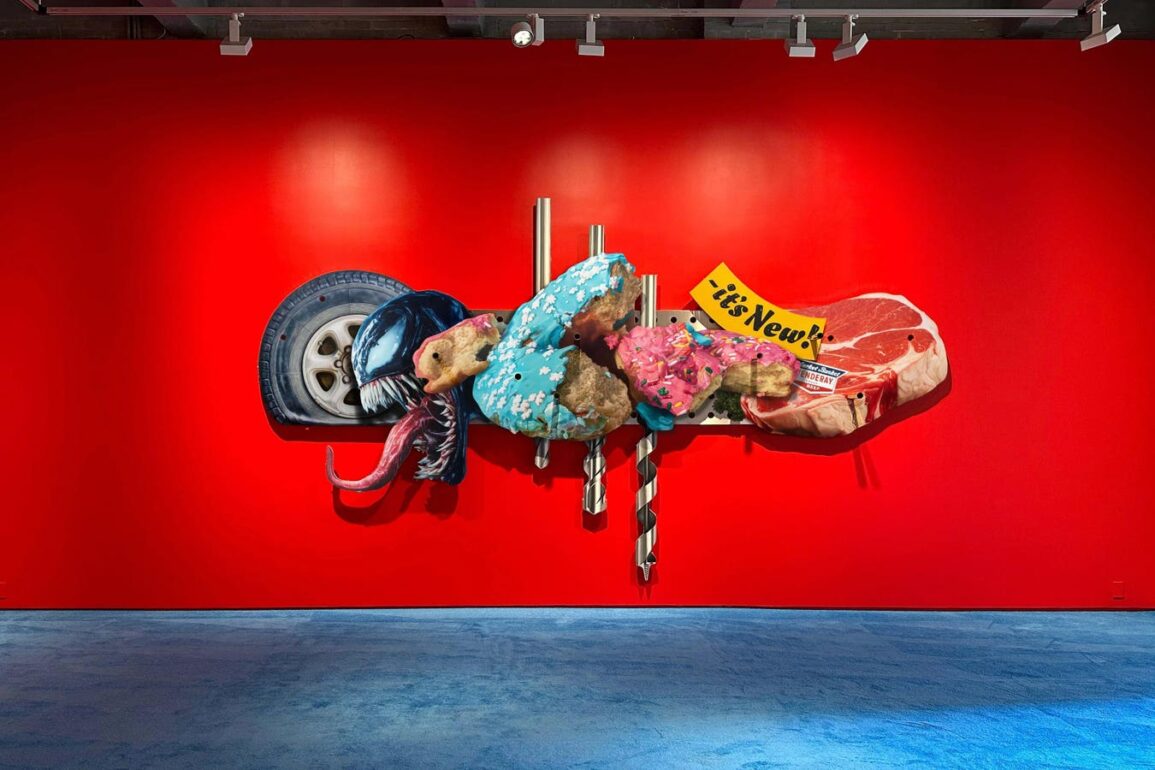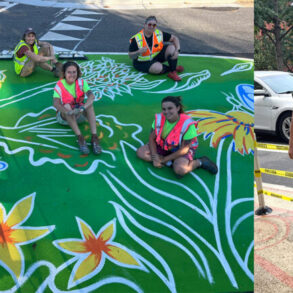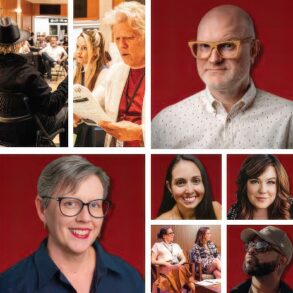
Founded by Daniel Templon in 1966 when he was only 21 years old, Templon has become one of the most influential contemporary art galleries in Paris, showcasing groundbreaking artists such as Donald Judd, Roy Lichtenstein, Frank Stella and Pierre & Gilles, who currently have a solo show, “Nuit Electrique” (Electric Night), at 28 rue du Grenier Saint-Lazare until October 26, 2024 showcasing a recent series of eccentric, nighttime portraits in their signature blend of painting and photography. Daniel Templon, known for his sharp eye for talent and avant-garde spirit, built the gallery into a powerhouse over decades, cultivating long-term relationships with both artists and collectors. His vision was instrumental in bringing international contemporary art to France and providing a platform for bold, emerging voices while nurturing established figures in the art world. Today, his gallery boasts four spaces: two in Paris, one in Brussels and one in New York City.
In 2015, Daniel’s son, Mathieu Templon, joined the gallery, and his arrival marked the beginning of a new chapter. Growing up surrounded by art and absorbing the gallery’s ethos from an early age, Mathieu brought his own vision to the family business, helping to grow its operations, including the first phase of its European expansion and the opening of its Chelsea outpost in 2022. He has played a critical role in adapting to the evolving art market, which demands more global reach and business sophistication. Under his leadership, Templon gallery has embraced contemporary trends while staying true to its core values – balancing innovation with continuity, and maintaining the family legacy in a highly competitive and changing industry. I sit down with Daniel Templon to discuss succession in the art gallery business and the transmission of family values from father to son.
Pierre & Gilles, Le Grand Danger de se Plaire (Léonard Lasry), 2023, ink-jet photograph printed on canvas and painted, 54 3/4 × 45 in.
Photo courtesy of Templon
Did you have to convince your son to work with you in the family business or did he come to it naturally, having grown up immersed in art?
As a child, my son Mathieu was naturally immersed in the art world. We would often go together to museums, galleries and artists’ studios, but it was only in his mid-20s that he chose to work in this field. I was thrilled, but it was not planned and it took no convincing. We shared the same love for contemporary art. After a few years in New York at Sean Kelly gallery, he joined my gallery in Brussels in 2015 (it opened in 2013). It was the right time for him to come back to Europe and take on more responsibilities.
What is it like to have your son working with you in your family business today, and what does the younger generation bring to the table? Does he bring different skills from you, as well as a link with younger collectors, curators and artists?
In our industry, you always have to keep a fresh eye and look for new artists, see what each generation brings. It’s not a matter of age, but passion and intellectual curiosity. The gallery’s program is all about a conversation between established artists and emerging artists. We are all always on the lookout for new exciting talents. With them comes naturally a network of new collectors and curators.
Father and son gallerists Daniel and Mathieu Templon at Templon gallery in Paris
Photo Luc Castel
Why did you put Mathieu at the helm of your New York gallery?
As the gallery’s roster of artists continued to grow, it was obvious that many of our artists lacked brick-and-mortar representation in the United States. Mathieu’s experience made him a natural fit for this necessary move. He had been thinking of going back to the United States for years. The first season was very positive, both from a commercial and critical point of view, with a series of extremely successful shows: Omar Ba, Chiharu Shiota, Ivan Navarro, Jim Dine. This US expansion has felt very natural and business decisions are all discussed collegially. It’s an organic process, and like in all small companies, it is a collective effort. We have a great team.
This post was originally published on this site be sure to check out more of their content








